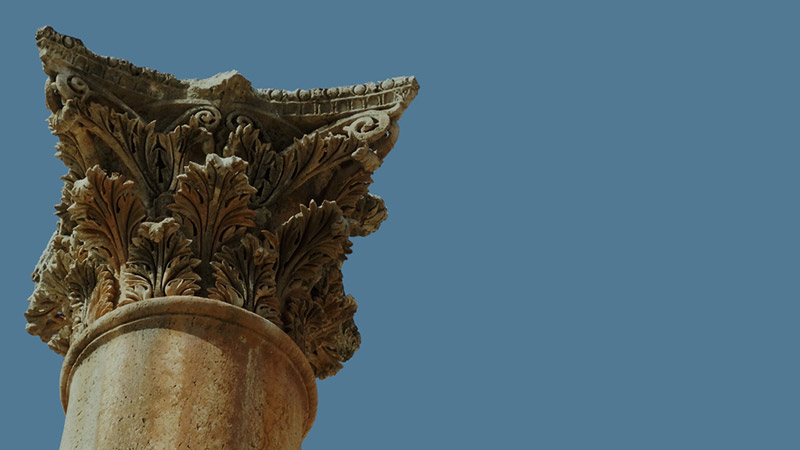Select Marker to See Location Name
You Searched "Cities"
-
Volume 7
Lesson 7.3 | An Unlikely Disciple
-
Volume 7
Lesson 7.5 | Don't Forget Us
- LOAD MORE
- SHOW ALL
Updating...
Volume 7 |
Lesson 7.3 | An Unlikely Disciple |
Volume 7 |
Lesson 7.5 | Don't Forget Us |
Showing 12 of 148

Jerusalem was a fitting place for Jesus, the greatest king of all, to live out the final moments of his life.Jerusalem held deep cultural and religious significance for the Jewish people. Many of their great leaders, David, Solomon, Hezekiah, reig...
MORE
What was "Cistern Water"In Israel, the rainy season is only five months long, stretching from November through March. Since fresh springs like those at En Gedi are rare, most ancient cities, towns, and even households used cisterns to ca...
MORE
Gezer, Dan, Arad-these place names have little meaning for most Bible readers. But they did mean something to the writers of the Text. These places brought certain pictures and events to mind, much like the names "New York," "Hicksv...
MORE
City DaughtersA city king's influence often extended beyond the city walls. Major cities, such as Gezer, had smaller villages, known as "daughters," that cropped up outside the city walls. Unlike a city, these villages were not walled. T...
MORE
The American concept of a king is usually negative. The Revolutionary War experience prompted most Americans to view kings as tyrants who cared little for the common person.Not all bad This view of kingship would not have been shared by most ancie...
MORE
Most cities from the biblical period were fairly small, and people lived in closely knit, well-defined communities. Jerusalem of David's time covered 9-10 acres with a population of 1,500-2,000 persons. Jerusalem during Jesus' time occupied about ...
MORE
Commerce was an important part of ancient life, allowing people from various regions to trade with each other and acquire needed supplies.Occupations varied from place to place. In fertile areas, agriculture thrived. In the wilderness, shepherds r...
MORE
The CityAncient Beth Shemesh guarded the Sorek Valley of Israel's Shephelah; a place where the pagans and the Israelites often interacted.Beth Shemesh stands in Israel's Shephelah;foothills lying between the coastal plain and Judea Mountains. Seve...
MORE
Decapolis means "10 cities." Though the number of cities changed from time to time, the Decapolis was a group of independent city-states that were thoroughly pagan and Hellenistic. Veterans of Alexander the Great's army founded several o...
MORE
Believed to be the goddess of grain who provided food, Demeter was popular among common people because acquiring enough food was a dominant concern for them. The secretive cult worshiped in a temple (twenty-two by forty feet) and eight-hundred-sea...
MORE
Originally built in the third century before Christ, this small, beautiful temple was remodeled by the Romans. It was approached by a twenty-five-step stairway at the end of a 770-foot terrace. Here, people worshiped Dionysus, the fertility god of...
MORE
Ten Hellenistic cities established at the time of Alexander the Great east of the Sea of Galilee and north of Perea. Later, the Roman emperor Pompey organized the cities into a league named the Decapolis, largely populated by Roman army troops. In...
MORE